CULTURE
[CULTURE-BOOK] – Read for you, «Conversations avec le diable», collection of poems by Mouftaou Badarou

“God, the devil and humans”
With his second collection of poems, Mouftaou Badarou took up the challenge of stirring our conscience, prompting us to reflect on the unfathomable ways of the Lord and the omnipotence of the devil.
Classic poetry to brainstorm us. Structured in four sections, «Diableries», «Humanité», «Mélancolies», «Joyeusetés», Conversations avec le diable pose bien évidemment la problématique de la omnipotence du prince des ténèbres et de son emprise sur les humains, dans un défi fou lancé à Dieu. The author stigmatizes the fact that many humans succumb to the artifices of the devil, while everything is only illusion in this one. As the poem “God is Almighty but the devil is so evil” eloquently translated on page 33:
«God is Omnipotent but the Other is so clever/That fiery believers give way to his hold/Pitiful naive, everything is in the devil that illusion/He pushes, you his funambule puppets/Above a cliff of perdition/You letting go, hilarious, in full levitation!»
Thus, the first merit of this work is to offer us tools for reflection on the unfathomable ways of the Lord. God adjusts to humans the mechanisms of their righteousness which the devil tirelessly strives to undo. And the devils of the devil obviously have no control over the author. Nowhere in his work is there any question of denying his Faith or God. No matter what an atheist thinks, God is God, the merciful All who protects every believer with a strengthened faith. As the author says so well in the poem “Temptation” on page 44:
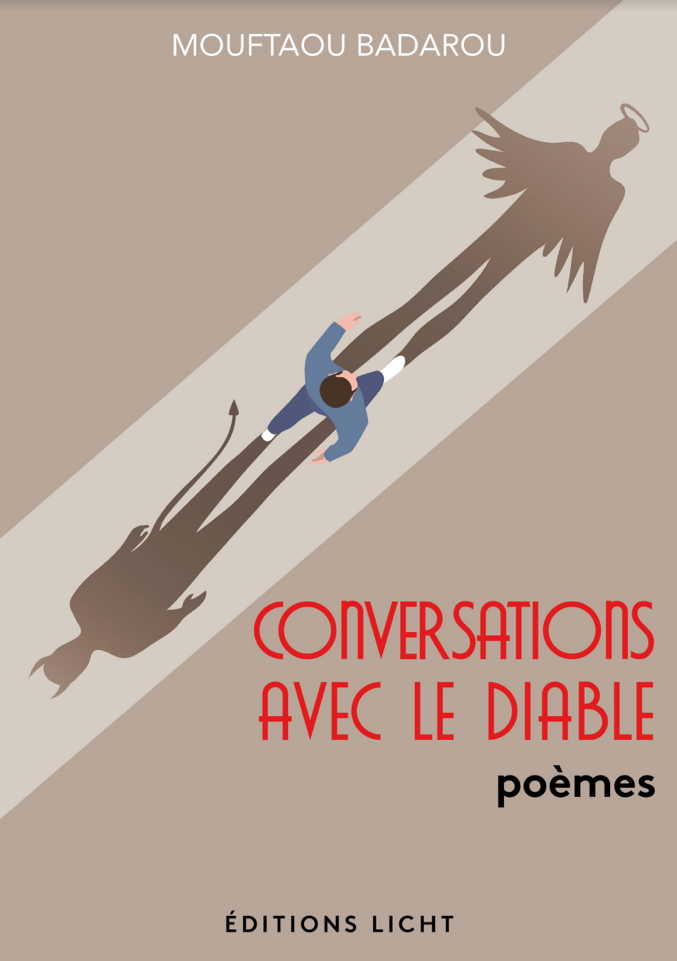
A night when I prayed to God/On my knees, hands stretched out to the heavens/The devil in his honeyed tone/Bewitching, irreverent/Uttered a whole flowering of blasphemy/But weary of his abject carousel/With my feet joined in his trap/I told him with a firm tone: Shorten/ Thou shalt not have me, God protect me!”
The interest of this book comes not only from the section «Diableries». The other three chapters, namely «Humanity», Melancholy» and «Joys» explore very well the complexity of the human soul: theft, adultery, ingratitude, greed, vanity, etc. If these poems, stigmatizing the darkness of the soul, are sharper than daggers, the sublimation and exaltation of love are never far away. As in the poem “To my Muse” on page 9, a piece of remarkable fluidity and poetic charge:
“O my muse, you have pierced my heart/It is so wide and deep the notch/It harbours a pernicious tumor.”
The author even manages, through alliances of words and rhymes, to magnify the nature created by God, as in the evocation of a magical landscape on page 130, in the poem “The wind made love with the sand”:
“The grains of sand had sighs of ease/Under the burning caresses of the wind/And this incandescent coupling/And these waves licking the cliff/Seemed to compliment in unison/For its magnificence, nature.”
Although all these poems are original, many reflect the fluidity and musicality of Paul Verlaine, whose author was visibly inspired, and to whom he dedicated the poem “What is this strange world” on page 126:
“I have sought so much to give/From my heart to a Madonna/She did not find it good/I have often helped/To others, without discernment/But no thanks.”
The Quebec poet Émile Nelligan, the Negritude singer Aimé Césaire and the incomparable Charles Baudelaire also have a part in the poetic formation of Mouftaou Badarou. The author probably holds from Baudelaire the taste of impeccable form and the necessity of technical work. Some poems thus indicate the constant effort of Mouftaou Badarou to get closer to the poetic mastery of his inspirators. As in the poem “My Two Books” on page 73:
“I have in my office two precious books/One from Verlaine and the other from Césaire/Two rarities that I drag around everywhere/And that make me look like an antique dealer.”
Let’s bet that Conversations avec le diable will make a date, so much the title is catchy and the verses remarkably chiseled, juggling between the real lived by the author and his poetic imaginary; so much this work restores moments of life (love) of the author, and his cruel sketches of the society around him. Mouftaou Badarou lets his emotional fragility appear here, while attacking the darkness of the human soul. Unfortunately, the author poses himself! too often as a victim, barely recognizing his own turpitudes.
Conversations with the Devil, ed. Licht, December 2021, 154 pages.
Available on Amazon, fnac.com, editionslicht.com and on order in all bookstores affiliated to the Dilicom network.
CULTURE
SENEGAL – Fatimata Diallo BA: The Glow of the Feather Winner
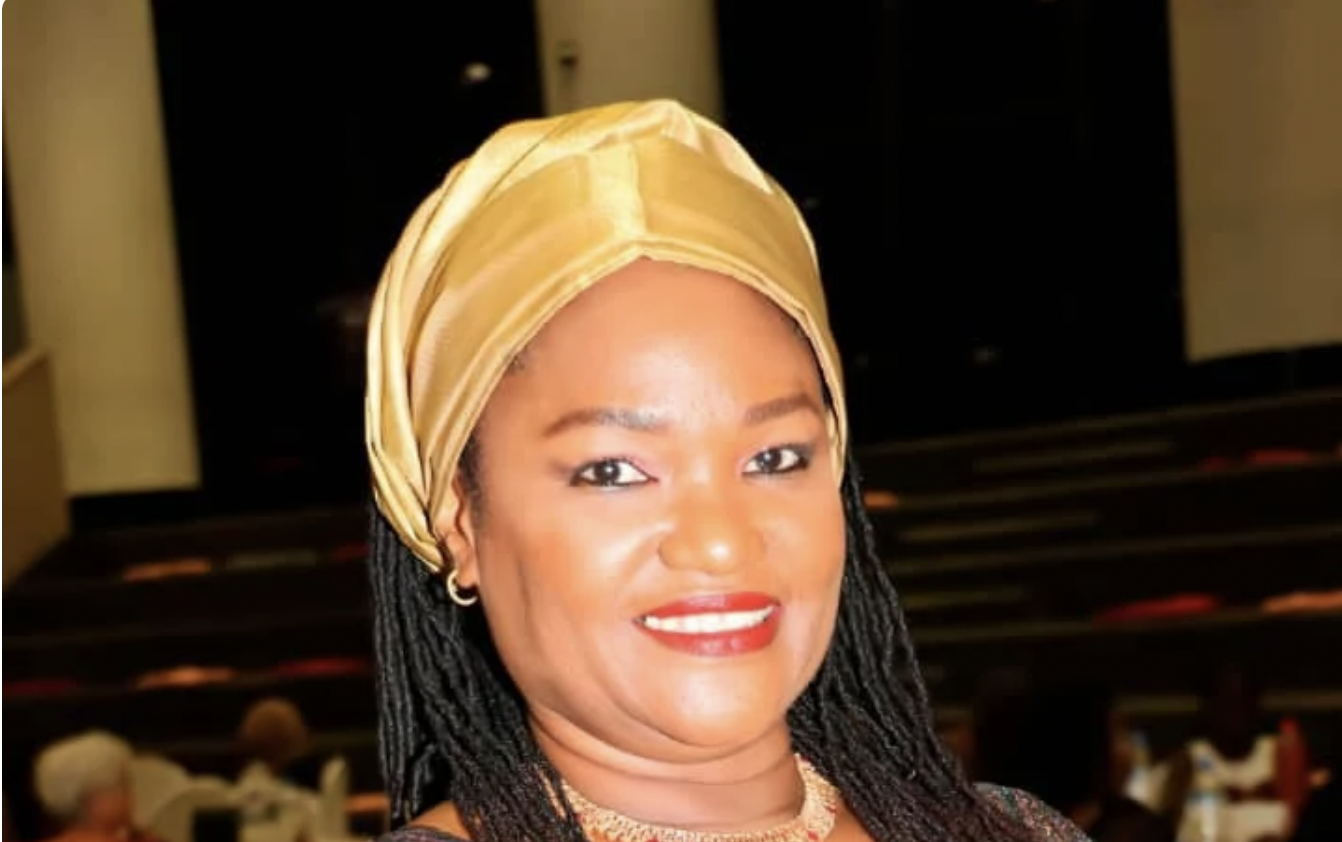
Fatimata Diallo BA, a French-Senegalese writer, recently made her mark on literary minds by winning the prestigious Cénacle Prize for Young Writers of Senegal in 2023 with her poignant novel «Rouges Silences».
Originally from Dakar, Fatimata grew up in a rich cultural atmosphere, and her academic background led her to the university benches in Poitiers and Paris, where she studied Classics. This Franco-Senegalese acquired a unique perspective, merging the literary influences of the two cultures that shaped her.
With seventeen years of experience teaching in the suburbs of Paris, Fatimata Diallo BA decided to return to Senegal, where she currently works as a teacher of French and Latin at the prestigious Jean Mermoz French High School in Dakar. Her dedication to education and the transmission of knowledge is reflected in her active commitment to her students.
«Rouges Silences», his award-winning work, is a testament to Fatimata’s literary sensibility. The novel, on deep and universal themes, captivated the jury of the Cénacle Young Writers Prize, attesting to the author’s exceptional talent.
In addition to her literary success, Fatimata Diallo BA is also known for her dynamic involvement in various literary meetings and fairs. Her love for sharing literature and promoting dialogue around the book is evident in her active participation in these events.
With «Rouges Silences», Fatimata Diallo BA asserts herself as an emerging voice that deserves attention and recognition in the contemporary literary landscape. Her commitment to education and her talent as a writer promise a promising future, making her an inspiring figure for future generations of writers in Senegal and beyond.
Source: Senegal Njaay
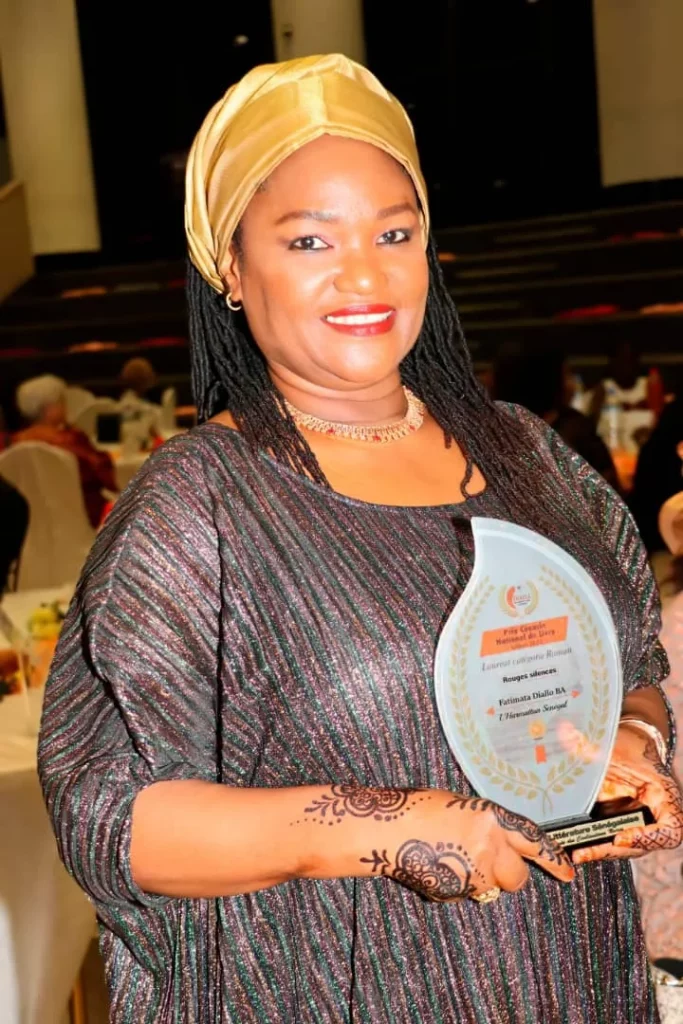
CULTURE
SENEGAL – Exclusive interview with Yussu Dumbia a.k.a Y.DEE
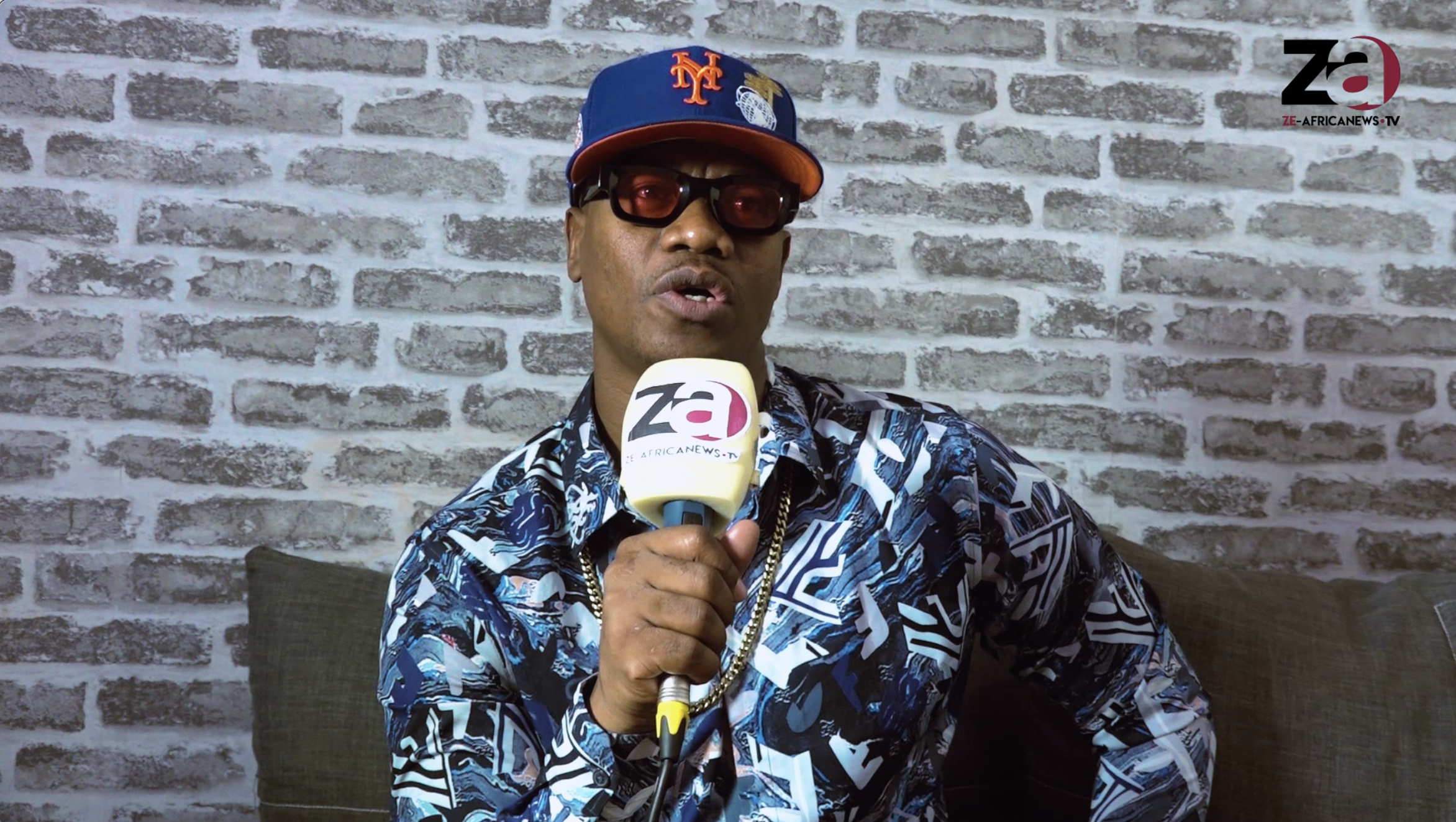
As part of the 9th edition of the Galsen Hip-Hop Awards, the Ze-Africanews team met Y.DEE the initiator of this cultural project.
Y.DEE lives between Senegal and the United States, he returns every year for this program in the city of Dakar. Host, columnist and rapper, he told us about his career, his impressions at the end of the 9th edition of the Galsen Hip Hop Awards edition 2023. During this edition the 50 years of Hip Hop were celebrated.
The African continent was represented at this edition. The older generation was honoured as forerunners and elders in the field.
Rwanda was the sponsor of this edition.
The full interview is available here:
CULTURE
CULTURE-LIVRE – Journalist Madiambal Diagne publishes a book on the history of Adji Sarr and Ousmane Sonko

The head of the press group Avenir Communication, which claims on all rooftops its proximity with President Macky Sall, announced this Friday, July 21, 2023 the release of its «investigation book» on the story that led Ousmane Sonko and the young masseuse Adji Sarr before the Criminal Chamber of Dakar on 23 May.
I am announcing the release of my investigation into the Adji Sarr – Ousmane Sonko case. The book “Ousmane Sonko – Adji Sarr: History”, will be sold on Monday, July 24 everywhere. The preface is by Hamidou Anne. I am published by Daily Editions,” he wrote on Twitter.
It should be noted that Hamidou Anne who prefaced this book is also one of the most virulent detractor of the Senegalese opponent. His columns are published on the website and the newspaper of the press group held by Madiambal Diagne, author of the book published by his own publishing house.
-

 EAST AFRICA1 year .
EAST AFRICA1 year .TANZANIA – President meets with Chairman of the Board and CEO of the Merck Foundation
-
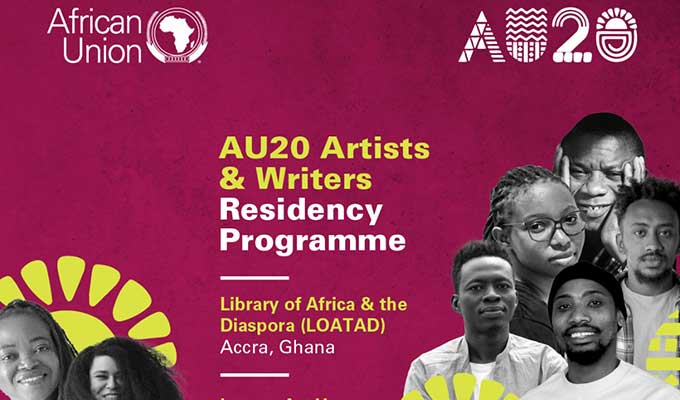
 CULTURE1 year .
CULTURE1 year .AFRICA – African writers and artists celebrate the 20th anniversary of the African Union
-

 BUSINESS8 months .
BUSINESS8 months .GUINEA – Authorities demand repatriation of mining revenues
-
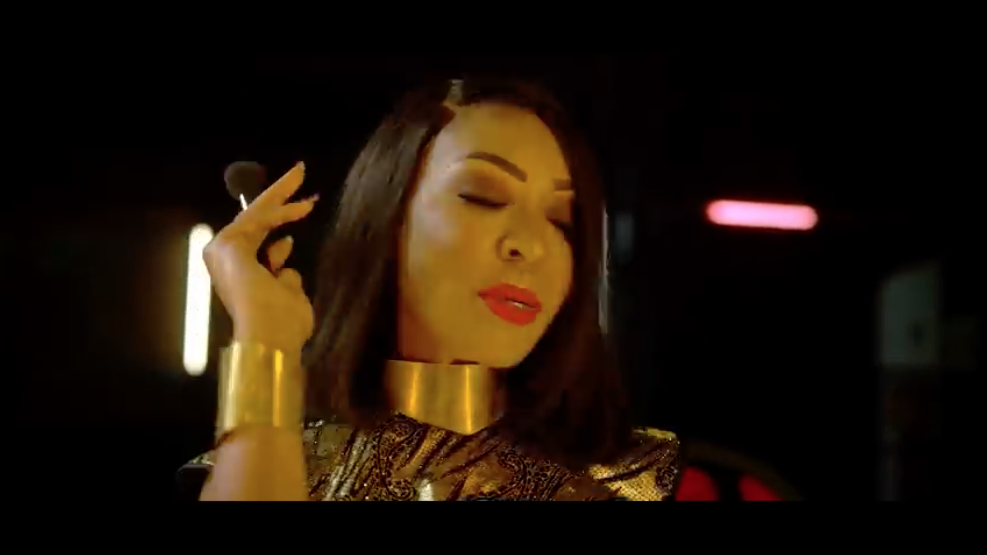
 CULTURE3 years .
CULTURE3 years .SENEGAL – “Sadik Lady” by Viviane Chidid
-

 CULTURE1 year .
CULTURE1 year .SENEGAL – Massamba Guèye wants to democratize the story
-

 IMMIGRATION9 months .
IMMIGRATION9 months .AFRICA – Migrant smuggling brings 59 billion CFA francs to smugglers per year
-
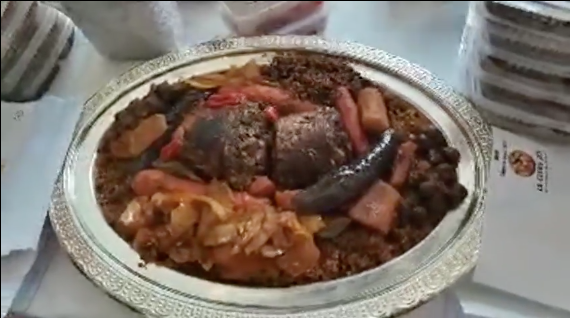
 CULTURE2 years .
CULTURE2 years .SENEGAL – Thiéboujeun inscribed on the World Heritage Site
-

 MOROCCO1 year .
MOROCCO1 year .MOROCCO – The King of Morocco Mouhamed VI finally in Dakar, tomorrow Tuesday



